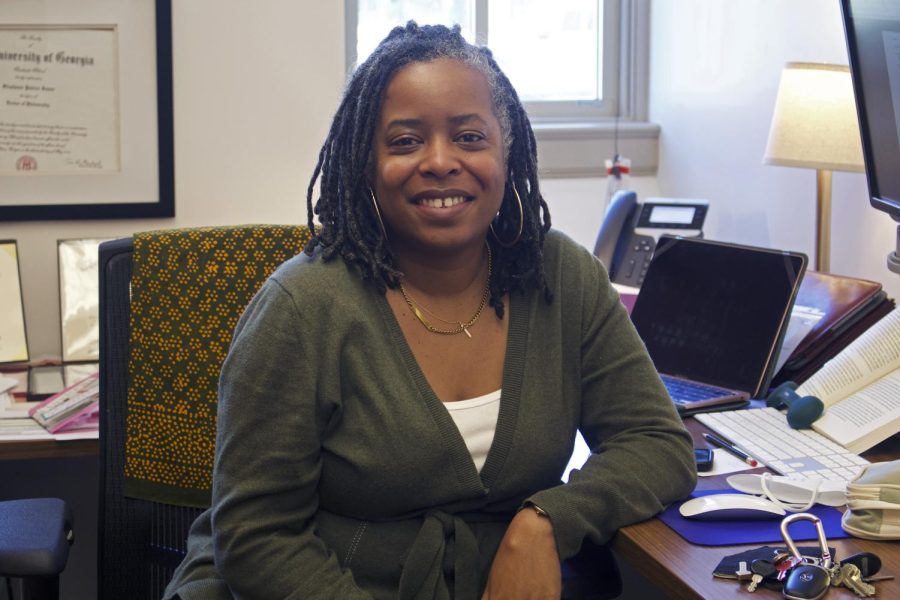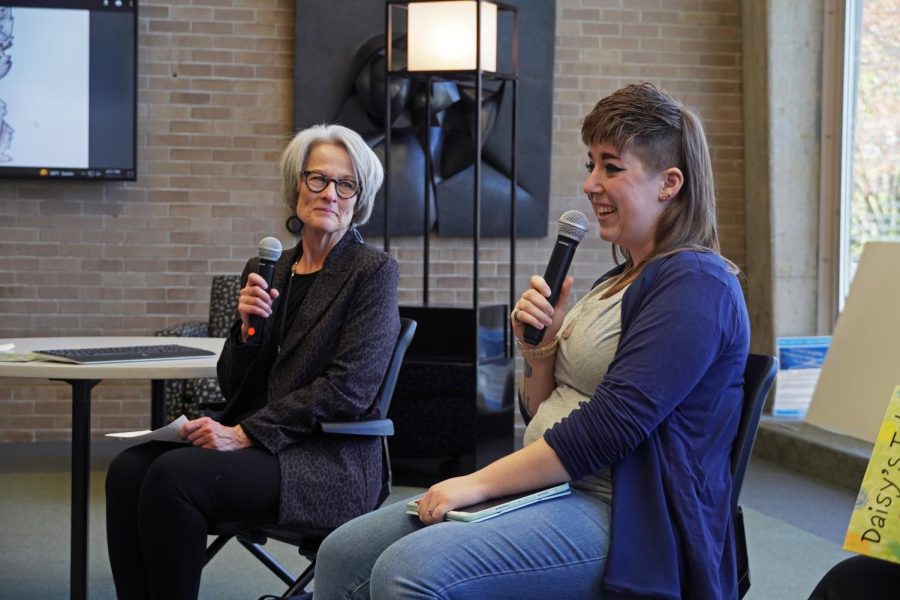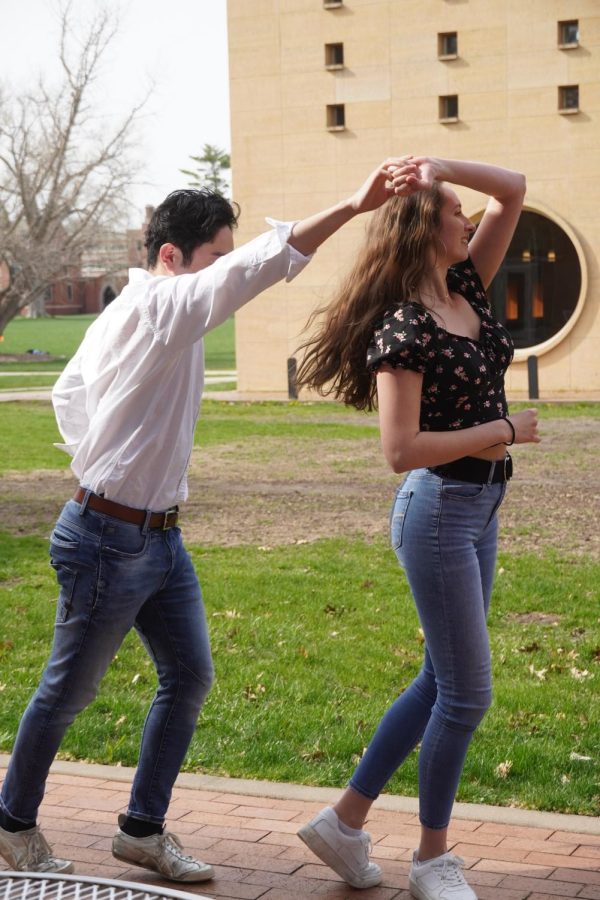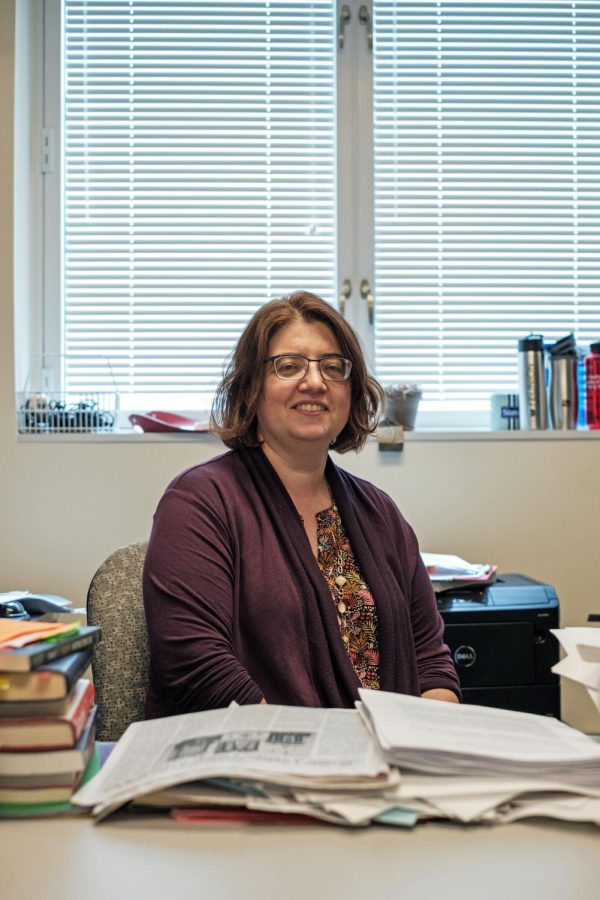The Grinnell College faculty’s executive council has prohibited the use of the n-word in the classroom. The decision, announced to faculty members on Oct. 2, follows an outcry over the use of the n-word in class last semester by Professor John Whittaker, anthropology.
The executive council came to the decision to “prohibit the actively spoken use of the n-word by faculty, staff, students, and visitors in all academic activities” after soliciting and incorporating input from faculty members across the institution, according to Chair of the Faculty Vida Praitis, biology.
But some students think the policy does not go far enough.
“I think it’s a step in the right direction, sure,” said Raven McClendon ’22. “But we said racial slurs – all of them. It’s not just the n-word. There’s more of them out there, and it shouldn’t stop with just the n-word.”
Along with Errol Blackstone ’20, McClendon created a list of 14 demands to safeguard Black students in response to Whittaker’s use of the n-word last semester. This policy, she says, doesn’t fully fulfill even one of them.
“We gave [administrators] a list of what to do, and that should be met with action, not, ‘Oh, here’s a list of what you all [Black students] should do,’ or ‘Here’s the people you all should talk to, to get this going,” she said. “I feel like that’s what we got when we had met with the President and CDO [Chief Diversity Officer Schvalla] Rivera.”
Hazel Murray ’22, who spoke with The S&B before her election to VPSA last week, agreed that the policy does not go far enough. “I feel like it’s long overdue,” she said. “Definitely, more needs to be done.”
Murray also identified the need for greater transparency and student involvement in setting policy and improving the campus climate.
“I like seeing SEPC members getting involved … like with Whittaker, so I feel like that’s a good groundwork to start from. But I feel like students should have more of a voice,” she said.
While student feedback was a key impetus for the policy, the resolution was created by the executive council alone.
“Certainly, we’ve been hearing from students about such a policy, but they were not involved in the wording and coming up of this policy directly,” said Interim Dean Elaine Marzluff, chemistry, a member of the executive council.
In addition to Marzluff and Praitis, the council includes College President Anne Harris, division chairs Professor Yvette Aparicio, Spanish, Professor Karla Erickson, sociology and Professor Lee Sharpe, chemistry, as well as two at-large faculty members, Professor Angelo Mercado, classics, and Professor Caleb Elfenbein, history and religious studies.
The policy applies to faculty, students, staff and visitors to Grinnell through the end of the 2020-21 academic year; both Praitis and Marzulff stressed that this is an interim measure while a “more robust Classroom Climate Policy” is developed.
“I have heard both, ‘It goes too far’ and ‘it does not go far enough,’” said Praitis. “This policy is like putting a bandage on a serious wound, right, that’s bleeding. You have to stop the bleeding first, stabilize the patient. And then you can think of ways of moving forward. … This is a first step to really address the harm that’s going on to our students.”
According to both Marzulff and Praitis, enforcement of the policy is likely to be through education or other means short of requiring resignation.
“We haven’t had time to finalize what sort of [enforcement] mechanisms we’re going to use,” said Marzluff. “We also want to recognize that in this scenario, the prohibition, it may still get spoken inadvertently, accidentally, so there’s not a one-size-fits-all policy to what’s happening there. … We need to have a variety of different ways that we’re able to move through that.”
What isn’t uncertain, said both Marzluff and Praitis, is that the policy does apply to Black professors using the word.
Murray and McClendon both oppose this application of the policy.
“The decision to encompass Black professors is frustrating because I feel as though the College is very reactive to the exclusion of POC but are proactive when it comes to [the exclusion of] white people,” Murray wrote in a follow-up email to The S&B.
According to McClendon, it’s an approach of “colorblindness” and it causes additional harm.
“I’m curious, what’s my penalty going to be? … Am I going to get in more trouble than fucking Professor Whittaker? That’s not how this policy should be. This is something that’s going to hurt Black people more. It restricts Black people’s rights in the classroom more.”





























































